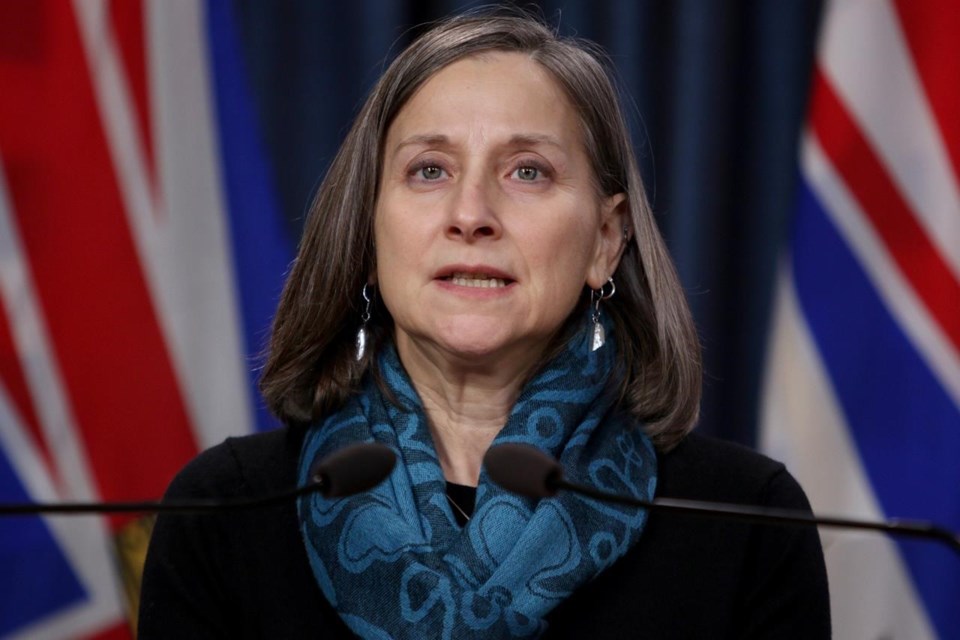VANCOUVER — A drug policy adviser to the City of Vancouver is warning of a dangerous drug saturating British Columbia's illicit supply in much the same way fentanyl did several years ago.
Karen Ward said unregulated benzodiazepines, or benzos, make overdoses more complex because they are often combined with opioids, but do not respond to the same overdose-reversing treatment.
"When combined with an opiate, it can produce a very, very serious overdose, a catastrophic overdose because you're down and because it's not an opiate, so naloxone has no effect on it," Ward said.
"This is very different situation than we were in a couple of years ago. And this is due to the contamination and ongoing degradation of the drug supply in B.C., and it's everywhere in B.C., it's terrifying."
The synthetics found in street drugs are different from the pharmaceutical benzos used as anti-anxiety medications, she said, adding they can knock someone unconscious for long periods of time.
More than half of the people who died from illicit drug overdoses in February had tranquilizing drugs containing benzodiazepines in their systems, the BC Coroners Service said in a statement Thursday, a rise from 15 per cent last July.
The service also released new figures showing 158 people died from toxic drugs in March, representing a 41 per cent increase over the same month last year.
The deaths mark the third consecutive month that more than five people died every day from illicit drug use in the province. They push the total number of deaths linked to the province's overdose crisis to 498 since the start of the year.
Dr. Matt Laing of the BC Centre on Substance Use said the unregulated benzos and opioids like fentanyl work separately but synergistically to produce some "incredibly harmful effects."
Among the most dangerous is the way benzos decrease someone's drive to breath, compounding the same effect in opioids.
A constellation of other symptoms unique to the benzos, such as prolonged loss of consciousness and amnesia, also worsen when the substances are combined.
The vast majority of people have no intention of consuming benzos, but since the supply is unregulated, the toxic ingredient eventually becomes part of drug users' regular use patterns, and people may develop a dependence and start to seek them out, Laing said.
The combination of benzos and opioids is known as "benzo dope" or "blackout dope," he said.
"Most people I speak to do not enjoy the sensation, it's incredibly unnerving not to remember a large portion of your last day," Laing said.
"Depending on the circumstances, we're also seeing a whole host of horrible associated outcomes like sexual assault, people having their belongings stolen," he said.
Reversing a benzo overdose is more complicated than a fentanyl one, which responds to medication that can be carried in a portable kit.
The toxicity-reversing agent for benzos needs to be administered intravenously in a controlled hospital environment, Laing said.
Uncontrolled withdrawal can cause severe brain damage or death because of the associated fluctuations in temperature, blood pressure, heart rate and other factors, he said.
However, if you suspect someone is overdosing on a combination of opioids and benzos, health officials still recommend administering naloxone if you have it.
It will temporarily reverse the opioid's effects and the person's breathing should normalize, even if they don't wake up, advises the harm reduction service at the BC Centre for Disease Control.
Both Laing and Ward said the growing presence of benzos poisoning the illicit drug supply is more evidence for the urgency of regulation through safe supply.
"It's safe to say we know the longer prohibition goes on, the longer we have for the unregulated drug market to adapt and change in increasingly toxic ways," Laing said.
Ward said in addition to safe supply, there are other ways the government can help reduce deaths, such as by staggering the day that social assistance cheques are distributed. Overdoses are highest on those days, she said.
"The well is poisoned, it's not going to be OK by itself," she said.
This report by The Canadian Press was first published April 29, 2021.
Amy Smart, The Canadian Press

